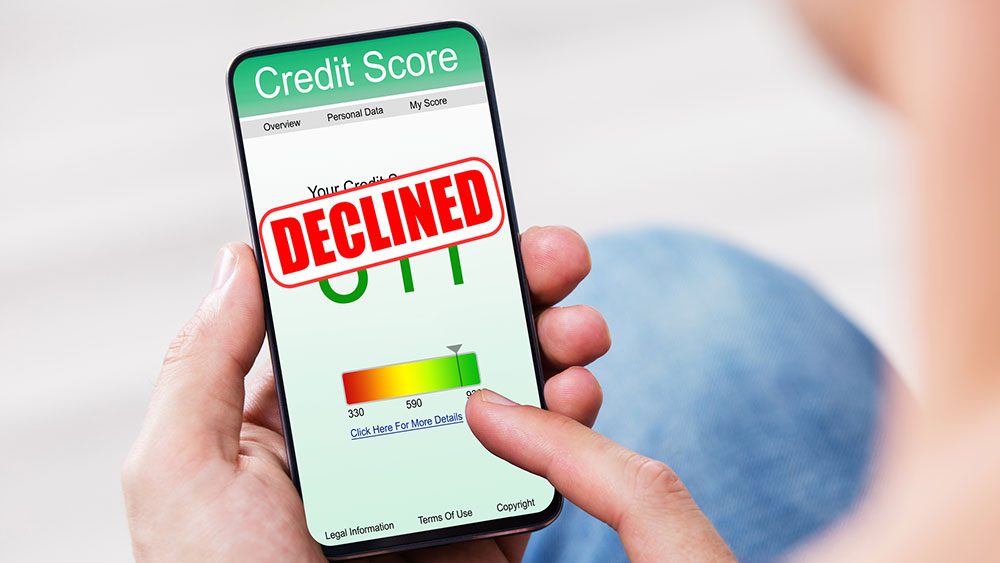FICO scores, commonly called credit scores, are a statistical gauge of an individual’s ability to repay a loan. Your credit score is a key consideration in any loan process. It is the primary factor lenders use to determine how much they will loan a borrower and the interest rate.
In some instances, a low credit score can result in paying a higher interest rate and down payment or being denied a mortgage loan. However, government-insured programs help borrowers with lower credit scores, or limited down payments, in purchasing a home.
Why Lenders Tend to Be Cautious
It is costly for lenders to foreclose on a mortgage due to non-payment; therefore, they are cautious when lending money to buy a home. Even though the appraised value of a property exceeds the loan amount at the time of closing, the cost to foreclose and liquidate the property can result in a loss for the lender.
During the 2008-2010 financial crisis, foreclosures peaked in the United States due to lenient lending standards and excessive subprime lending to less qualified borrowers. Suddenly the real estate market was flooded with a surplus of bank-owned properties that forced prices down and resulted in massive losses for lenders. Following the crisis, lenders are now more diligent and have higher standards for approving mortgage loans.
How Credit Scores are Calculated
The FICO scoring system of credit scores ranges from 350 to 850, with higher scores reflecting a better credit history. The scores are compiled from an individual’s:
- Payment history, including the number of late or missed payments.
- The total amount owed at the time of the credit check.
- Credit mix, multiple loans, and excessive credit card debt.
- Recent new debt, plus a high number of credit inquiries.
- Age of oldest active credit.
Mortgage lender underwriters assess this information and, after including current income and the new mortgage, decide whether to approve a loan.
It is possible to improve your credit score by paying down existing debt and other actions.
How Lenders View Credit Scores for Home Loans
Conventional Loans
The minimum credit score to secure home financing depends on the type of mortgage.
The primary and most common type of mortgage is a conventional loan. According to Nerdwallet.com, the lowest credit score to secure a conventional 30-year loan is typically 620; however, the credit score varies among lenders. The average credit score for a conventional loan between March and April of 2021 was 757.
Borrowers with less than a 20% down payment must pay PMI (private mortgage insurance) to ensure mortgage repayment in the event of default. PMI insurance is typically paid monthly with the mortgage payment and tends to be costlier for borrowers with a lower credit score.
FHA Loans
The Federal Housing Administration (FHA) typically insures mortgages for homebuyers with a credit score of 500 or more. Borrowers with a credit score above 580 can purchase the home with a down payment of just 3.5% of the purchase price. Those with credit scores between 500 and 580 may be required to pay a 10% down payment.
However, many lenders impose limitations on FHA-backed loans. The average FHA borrower from March to September 2021 had a credit score of 722.
VA Loans
For active military as well as documented veterans and spouses of the U.S. Armed Forces, the Department of Veterans Affairs guarantees mortgage loans without requiring a down payment. While the VA’s credit score limit is not specific, VA lenders usually require a minimum score in the low 600s. The average credit score for VA loans between March and September of 2021 was 722.
USDA Loans
The Department of Agriculture also offers guaranteed mortgage loans in qualified rural areas, although the minimum score depends on the lender. According to Rocket Loans, eligible applicants must have an income below 115% of the area’s median income level and typically possess a credit score of at least 640.
Consult with a Professional Realtor
Realtors are outstanding resources for how and where to seek mortgage financing. These professionals understand the area and know the lenders who can help you get a mortgage to buy a home.
Before you begin your quest to find the home of your dreams, consulting with an experienced and knowledgeable real estate agent will save you time and help you achieve your dream of owning a home.
© 2024 xpertRealtyMarketing.



